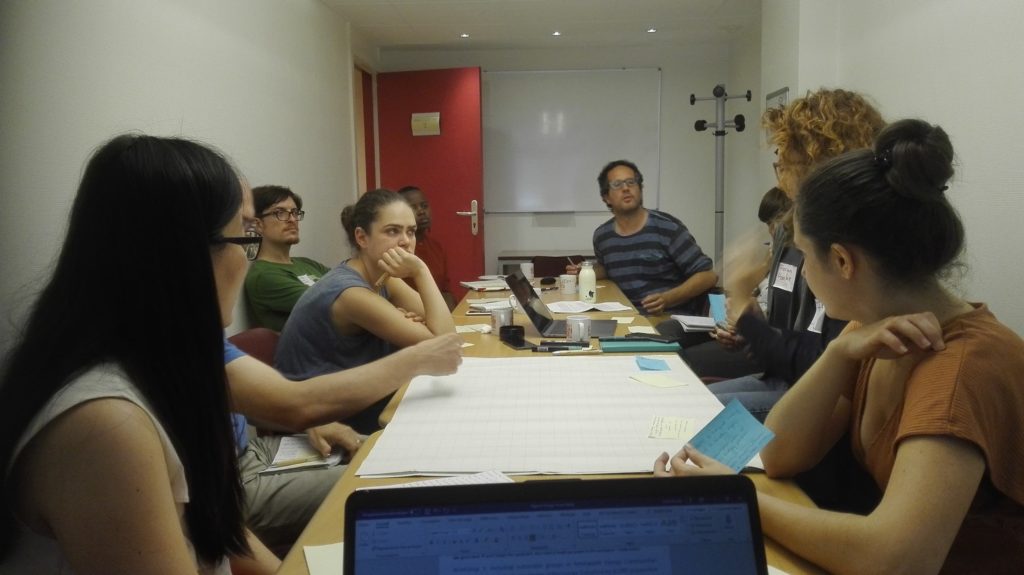12 July, 2019
All against energy poverty!
A look back at the “Right to energy” forum
Blog originally published on Energy Cities
Coinciding with the European Union Sustainable Energy Week (EUSEW), the Right to Energy coalition organised a forum on 19 and 20 June to rally public opinion and discuss the challenges raised by energy poverty. In Europe, millions of people are concerned: unable to pay their energy bills, they have to live without energy and in unhealthy living conditions. They suffer from not being able to heat their homes in winter or to use air-conditioning in the increasingly hot summers.
Community organisations and local players met to share their experiences and come up with new solutions.
Energy: a fundamental human right
This forum brought together a range of players: Ruth London from Fuel Poverty Action, Asad Rehman from War on want, Aurélie Ciuti from the Réseau wallon pour l’accès durable à l’énergie (RWADE), Jan Goudriaan from the European Public Service Union (EPSU), Josep Badot from the Alianza contra la probreza energetica and Yolanda Picazo from Mujeres con Energía Cooperativa. Despite their different backgrounds, their message was the same: energy is a fundamental human right that is not protected under the current energy system.
The European Commission states that it wants a fair and social energy transition, so it is essential that the voice of the most vulnerable be heard. Women are among the hardest hit, especially single mothers on low incomes, and account for 80% of the “energy poor”. Public authorities must invest, control prices and involve citizens, even the most vulnerable, in fighting energy poverty. To achieve this, the movements in favour of social justice and those fighting climate change must join forces in a cross-sectoral, transnational approach!
Integrating the most vulnerable in energy policymaking
Eager to share their experiences, participants discussed future actions at the European level, the specific needs of women and Eastern European countries and how to include vulnerable citizens in policy making. Energy poverty is not sufficiently high on the agenda although the next few years will be crucial with the transposition of the EU clean energy package into Members States’ national laws.
Solutions were discussed:
- Should a differentiated carbon tax be introduced?
- Since energy is a fundamental right, should free access to energy be guaranteed to cover vital needs?
- What measures should be taken to integrate vulnerable people in renewable energy cooperatives?

facilitated by SCORE © Rosalie Lédée
Animated discussions pointed to the prominent role of local authorities. The remuncipalisation of energy was mentioned as a sustainable solution to move away from market logic and provide a fair public service. At the same time, support for renewable energy cooperatives is essential for their development.
Committed MEPs
Although the previous mandate led to major breakthroughs, notably the launch of the EU energy poverty observatory in 2018, many challenges remain. Energy policies do not sufficiently integrate the gender aspect or the fact that not all citizens have access to information about the various energy suppliers. The MEPs Saskia Bricmont (BE), Cornelia Ernst (DE) and Theresa Griffin (UK) insisted on the positive effects of sharing best practices in this field, especially through the Covenant of Mayors. The European Union must strengthen its ambition and include energy and climate issues in all its policies, which is only possible by involving all stakeholders, including civil society. At the end of the forum, the Right to Energy coalition adopted a declaration with three main demands:
- Recognising that access to energy is a basic human right and a public good that must be protected through effective policy,
- Democratising the energy system, through public and community ownership and control of energy, is a necessary condition to ensure a just transition to renewable energy
- Reducing overall energy demand by improving the energy efficiency of homes.

